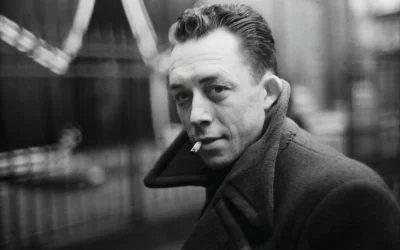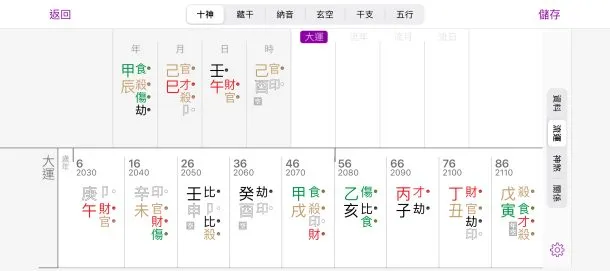My peak period is here, and my bandwidth is getting limited, but I thought I’d drop some quick thoughts. I’m cleaning up the Blog Categories for my posts, and I’ll be labelling some under “Musings” for posts that aren’t as lengthy or deep. These will be posts to dump some quick thoughts down.
The most important posts on my blog are actually not the ones that point out how messed up the industry is or how many deluded, sometimes downright mentally ill practitioners there are in my industry craving for attention or the need to feel validated and special. These issues should be obvious to anyone with a critical mind by now.
The posts that I personally feel are most important, and the ones that I’m most proud of, are those that get people thinking and seeing life differently in a way that benefits and enriches them. Perspective changes everything. Do you think positivity is positive? No, positivity can be negative – and that’s your laws of Yin and Yang that govern the world.
One of the most important posts I’ve ever written is the one below – on balance. This post is one of the longest posts I’ve ever written, and I’d encourage anyone with some spare time to go through it.
The reason why I wish to address toxic positivity is because it has become a bit of a theme lately amongst my younger Gen-Z clients. ‘Practitioners’ have always been indulging in this and it’s an old story, but seeing my younger clients embrace toxic positivity is a bit of a concern. To be fair, it’s really not just Gen-Z, but people from my generation as well.
What Is Toxic Positivity?
I love irony, and it’s funny how positivity can be toxic. Let’s define it first:
Toxic positivity or positive toxicity is dysfunctional emotional management without the full acknowledgment of negative emotions, particularly anger and sadness.
– Wikipedia
I knew toxic positivity existed before this term even became mainstream and this is because my industry is, unfortunately, the perfect embodiment of toxic positivity and there is a non-stop proliferation of it. Anyone who has been following my blog for a while now would know I speak about these issues from time to time.
One pity about growing up in Asian culture and perhaps in Singapore, especially for my generation and those before mine, is that we weren’t taught how to manage our emotions since we were young. It’s no fault of anyone’s because Singapore is focused on survival. We were brought up to be cogs in a machine, providing labour to MNCs that invest in Singapore so that the country doesn’t become irrelevant. My generation of people and those before me were not brought up being taught to be happy because there’s no room to talk about happiness when you can’t even survive.
The rampant toxic positivity we all witness is as though we’re all overcompensating for what we lacked when we were younger, only to realise that this overcompensation has repercussions.
Why I Wish To Talk About Toxic Positivity
Toxic positivity, like narcissism, is a problem in my industry. Toxic positivity is also often mixed with narcissism because being pretentious about being “good”, “compassionate”, and whatnot is the best way to get people on your side. There is nothing more intoxicating than parading yourself as a good person and getting praises for it.
Chinese metaphysics and astrology have become like a drug and every single thing needs to be positive. It’s as though you’re not qualified to be a practitioner if you cannot spin everything with some positivity. This has always been the way my industry is being sold: attend a seminar somewhere, and it’s as though you have the secret sauce to a good, happy life.
Consumers crave this emotional high, and most practitioners willingly provide it. Nothing sells better than hope and a quick fix to our life’s problems. It has always been a problem, and it has always bothered me.
Now, there’s nothing wrong with being optimistic, but I think anyone who has known me long enough will know that if you are 100% positive all the time, things will start to take a different nature. I will always believe in the axiom of “balance in all things” no matter what, and it’s not because I enjoy being a killjoy.
I don’t think everyone needs me to reiterate the scientific discourse that’s already out there – that toxic positivity seriously affects mental health, leading to everything that you were attempting to escape from in the first place – which is guilt, anxiety, and generally feeling inadequate about life.
Toxic positivity is something I witness in my line of work all the time, but not so much from my own clients because people know they won’t be handed positivity for the sake of it when they come to me. If I have to deliver a tough message to get a point across and bring about change – I will do it. That said, it is a serious problem in my industry. Practitioner sell toxic positivity and people actually buy it.
I don’t know how else to say this, but the people I’ve met in my life who are dysfunctional but deal with it with false positivity – are still very much dysfunctional.
Chinese Metaphysics & Astrology Is The Breeding Ground For Toxic Positivity
My industry is, unfortunately, a breeding ground for toxic positivity – because if you are connected to or studying the laws of the universe, you somehow have the divine responsibility to uplift people with new-age spiritual gibberish. There’s a natural bias for spirituality to be tied to the positive because of how the notion of spirituality is always pitted against what we’re taught to avoid – darkness, negativity, and evil. It is always about light vs. dark, Yin vs. Yang, instead of Yin and Yang.
Every new practitioner or astrologer enters the field claiming, “I wish to help people.” Wanting to be altruistic is great, but I cannot help but feel that things are amiss sometimes. Buzzwords like “empathy”, “kindness”, “good vibes”, and whatnot are always being thrown around for the sake of being thrown around, and altruism and doing good feels more like a popularity contest.
The buzzwords and the virtues they symbolise are, of course, important notions for a happy and fulfilled life, and as much as it seems like I don’t care about these things because I’m s***posting on Instagram all the time – I do care about them. I just have something against virtue signalling and grandstanding, especially when what follows is an immediate sales pitch for a useless Feng Shui item or lucky charm.
The level of pretence in my industry is nauseating. Being a practitioner or an astrologer imbues you with a skill and allows you to look at the world through a different set of lenses, but it seems like people think being a practitioner or astrologer somehow means you’re the third coming of Buddha or the second coming of Christ, and that the world is so lucky to be graced by your divine presence.
Toxic positivity is a notion that sells well, and not many people expect to pay for something that makes you feel worse and that your life is not what it may seem to be. There is a severe lack of balance in my industry. I once thought it was only an issue with Chinese metaphysics, but it turns out modern-day Western astrology is the same because I can barely find anything objective or neutral online, and every single placement or trait in a chart is somehow positive.
Let’s not forget it’s easier to get a following if you sell positivity and good vibes, and it generally feels nice to have a large community that validates you no matter what happens.
Don’t Mix Up Chinese Metaphysics & Coaching
There are so many things I could say here that can make up an entire blog post.
I think one of the oxymoronic things about the Chinese metaphysics industry, from a business perspective at least, is that it’s often mixed up as a coaching industry. Most of the time, some form of coaching or even counselling is expected of a practitioner, which I can understand. You could even say that the words of an astrologer sometimes have even more weight than a licensed counsellor because astrology deals with a bit of the divine and someone is able to tell what kind of life you’re meant to have.
As much as people expect practitioners to be a bit of a coach, it’s important to remember there are still some stark differences and sometimes contradictions if a practitioner tries to be a coach or counsellor. Coaching’s aim is to help people develop and improve performance. If that’s all you seek, you actually don’t need to turn to Chinese metaphysics and astrology. The problem comes when people expect a practitioner to ‘coach’ them into living a life they are not meant to have. Suppose someone with a chart that will never get married comes to a practitioner and says, “Please coach me so that I can attract someone and get married.” What does the practitioner do then?
On one hand, the coach side of a practitioner wants to give a motivational speech to help someone find his or her partner. On the other, the astrologer side of a practitioner knows this person is not fated to get married. The coach side of someone would say anything that needs to be said to improve the chances of someone getting hitched, whereas the astrologer side of someone would probably tell the client to learn to enjoy being alone – which actually makes sense because someone who can’t enjoy being alone usually doesn’t do well in a marriage.
What I’m trying to say here is that there is something oxymoronic about being a coach and a practitioner at the same time if you get what I mean, and I’d rather not be a coach while deluding someone that he or she can have the life the charts say he or she doesn’t deserve.
I don’t position myself as a coach because, whether you like it or not, Chinese metaphysics and astrology do deal with a bit of predestination. Can I coach a Category 4 person to become a Category 1 person? I can tell you that’s impossible. If human nature and how we’re born to be can be changed just with someone constantly yapping at you, this blog need not exist. I never had a coach, or felt like I needed a coach. I overcame my challenges and obstacles myself, and committed to a path which I know I’ll never steer away from. Coaching is not a role or career I can emotionally connect with, and I am uncomfortable positioning myself as one due to the conflicting nature of the roles of an astrologer vs coach.
Why I Don’t Talk About Kindness & Empathy Much
Most people aspect people like myself to be constantly ‘preaching’ about virtues because astrology deals a bit with the spiritual and divine. There is a very simple reason why I don’t talk about kindness, empathy, or virtues much. It’s going to sound a tad reductive but let’s see if you agree with me.
I don’t talk or preach about these virtues much because some things in life are so common sense, fundamental, and obvious that there’s no need to talk about them all the time, especially when I don’t think any of my readers lack the intelligence to understand why kindness and empathy are important. I really mean it when I say this – you really don’t need to keep yelping about the importance of being kind because that should be a default human condition. There are also situations where you need to do a seemingly harsh thing to achieve the greater good, and situations like these do not benefit from senseless rhetoric about kindness. I wish life was that straightforward, but it isn’t.
Yes, I know we should install these values into our children and teach people that kindness and empathy are important from young, but if you are in your 30s and 40s, and you still find a need to teach people in their 30s, 40s, or older about the importance of kindness and empathy – I’d like to think that there is an even greater problem here then. It’s as though you’re a dysfunctional middle-aged person trying to teach more dysfunctional people how to be a decent human being.
Talking about these virtues to make myself sound nicer, softer, or more enlightened is very, very pretentious. Not talking about them also doesn’t mean I lack them. Talking about them is also easy – living by these virtues aren’t.
The only time I’ve spoken about the importance of being kind and the point of doing good deeds is in this blog post:
The funny thing is some practitioners ended up copying what I said in the post, just that they did it in the form of a video, using the examples of putting fruits on altars like it’s offering a bribe to our ancestors and Heavens.
I’m not sure about everyone, but I always found it weird that people need to advertise and showcase themselves doing good deeds or making grand statements about ‘vibrating higher’, listening to your inner voice, or whatever. If listening to your inner voice is all you need to do, I really wouldn’t be dealing with the people you’re always hearing me complain about.
What is the point of doing good deeds? How should we go about doing them? Do good deeds lose their meaning if you do it simply to post it on TikTok for views, or in hopes that Heavens will let you strike the lottery? I’ve encountered clients who make grand statements like they wish to build an orphanage, start businesses that focus on kindness, or advocate something they’ve not even gone through or experienced.
The interesting thing here is that these people have extremely mediocre charts despite marketing and positioning themselves very well, and it should be clear why this is. Do you have that friend who is always posting motivational stuff, posting about how hardworking they are, but if you really look at things objectively – you’ll realise they didn’t achieve much, and if they fail someday, it’s always someone else’s fault?
What becomes of the world if pretence is all that’s required to be happy and successful?
I’ve said this before, but if we blindly follow virtues for the sake of it without questioning what makes them virtues in the first place, everything just becomes a farce. Does everyone deserve empathy? Anyone who knows me well enough will know I think it’s a “no”. When someone has crossed the lines, committed a heinous crime, and ceased to function as a human being such that their presence only brings nothing but harm to others – I don’t feel such a person deserves empathy. I’m sure such a person has got their fair share of empathy at the start, but to expect society to keep giving undeserved empathy is not how I envision a functioning society to be.
Embracing Negative Emotions
One thing I realised is that throughout my career, people shy away from negative emotions and feelings. I perfectly understand why people do that because it’s, well, unpleasant. We try to avoid it while always seeking the next positive high.
If you take a step back and think about it, avoiding negative emotions at all costs while constantly chasing a high is exactly what drives some people to drugs and substance abuse. It’s just that the ‘moral’ way of doing it is via spirituality and good vibes.
I’ve argued many times throughout my career that some negativity, attrition, and suffering are needed to bring out the best in us, and it is something you need to see as natural law. The element that exerts control or ‘ke‘ (克) us is not always a bad thing, and a square aspect in a Western astrology chart might not be a bad thing either. Negative emotions also signal to you what’s wrong and push you towards the right path, and I guess some of us with memorable Saturn Returns can relate to that.
If you study and appreciate Yin Yang theory, you’ll know that the creation of something new and beautiful needs both Yin and Yang – not Yang and more Yang or Yin and more Yin. You can even observe this in nature. Let’s take plants, for example – they can’t be under the Sun forever, and they need darkness too. I know what people are thinking, and it is that we are not plants, and we have feelings and emotions. But my argument here is the same, and I urge everything to think about whether or not it is true that our biggest growth comes from the moments when the Sun metaphorically sets. We’ve had enough fun and enjoyment, and we need to think about what’s next.
Remember that the universe’s laws, through the language of astrology and Chinese metaphysics, apply to everything. If you fear negative emotions so damn much, I really wonder how much you’ll end up growing as a person.
How Do I Balance Positivity And Negativity?
There’s no straightforward answer to this, and I am definitely not qualified to counsel someone in managing their emotions. All I can do, and I’ve done this throughout my career, is to share my own personal experiences.
I guess the very first step to balance positivity and negativity is simply to embrace both of them. By embracing them, I do not mean to intensify them. I simply mean being comfortable with them and accepting them for what it is. Emotions are messy, and I perfectly understand, but emotions allowing us to feel are also beautiful and makes us human. It is also what makes your memories precious and why some memories and experiences change us forever.
Emotions come in waves and they just come. I don’t think anyone has the ability to dictate when, where, and how their emotions arise, but it doesn’t mean we can’t have mastery over them. I wouldn’t say we can “control” emotions – but we can channel them to constructive use. It’s like how I channel my anger and frustration into writing.
I’ve learned not to suppress my emotions and I allow myself to feel them, it’s just that growing into an adult has trained me to question and ask myself why I feel these emotions. I know what makes me like or love someone, just as much as I know what makes me detest someone. I don’t tell myself, “I should not detest this person.” I absolutely and wholeheartedly allow myself to detest this person, and I don’t shy away from this negative emotion, but what I do is question why I feel this way. Through this process, I understand myself better.
As I said, time and again, there is a reason why the Yin Yang symbol is drawn that way. You will never understand or get to know your real self unless you are ready to confront the darker sides of yourself. If you remember this scene in Marvel’s Shang Chi, you’ll know what I’m talking about.

Shang Chi’s mother said in this scene, 「掌握阴阳的转换,才能了解真正的自己。」If you know the interplay of Yin and Yang, you’ll get to know yourself. If you can appreciate this quote, I’d say you know what embracing Yin and Yang means and the wisdom behind it.
「掌握阴阳的转换,才能了解真正的自己。」
– Read What’s written above. dips***.
If you know the interplay of Yin and Yang, you’ll get to know yourself.
Perhaps let me give a more relatable example. Does it not surprise everyone that bad people always think they are doing good? Every evil person who has brought nothing but destructive and mass suffering thought they were doing God’s work. It kind of sounds like the moronic anti-vaxxers you see in Singapore, don’t you think? Hitler probably thought he was the greatest and most morally upright person at some point. We don’t even need to use extreme examples here. Just think back to the last time someone went out of their way to harm you, but yet, still think they are a ‘good person’.
The paradox here is that perhaps acknowledging our dark sides brings about some form of harmony. I’ve witnessed this sort of mentality from many of my Category 4 clients – they like to think that they are victimised martyrs doing good, but it’s often far from the case and they’ve never once asked themselves if they are causing more harm than good. They don’t embrace or accept their Yin, darker side, and the delusion that they can only be good leads to more harm to not just them but everyone around them as well.
The above quote is akin to questioning what one’s motivates are sometimes. I’ve met so many people who say they wish to get married, but yet, they are the most selfish and obnoxious people you can ever meet; I’ve met people who say they wish to change the world, but they’re also some of the most useless, narcissistic people you can ever meet just wanting validation for something they’re not even willing to work hard for.
Consequences Of Only Embracing The Yang But Not The Yin
For clarity’s sake, Yang refers to positive and Yin refers to negative.
I know you hear me say this all the time, and it’s the same old saying, “I’ve met all sorts of people in my life.” I mean, I really have. I’m really not joking when I say the people who are obsessed with being positive are some of the most dysfunctional people I’ve met in my life. Interestingly enough, they are also the most defensive, sensitive, and even egotistical people I’ve met. They are so positive that it seems as though nothing about them is negative.
I sometimes speak about the act of “clinging on to an identity” one has crafted for themselves. Some people cling on to the identity that they, and sometimes their parents, crafted for themselves since young, whereas some people cling on to a new identity they’ve crafted as they reach adulthood after going through a traumatic event, thinking this newly crafted identity is a newer, better version of themselves when it’s sometimes not. They think this newer and better version of themselves makes them special and only they have the key to happiness when it is only their ego speaking.
Now, I’m definitely not saying that we need to always plan for the worst-case scenario, think in the most pessimistic way ever, or think lowly of ourselves. My argument here is and has always been that neither extreme is good. Too negative, and you’re basically depressed; too positive, and you’re delusional. Embracing both positive and negative is not something we often talk about or appreciate because we are usually taught to pursue the positive and repress the negative. We must always be the best version of ourselves, and being in a meritocratic country like Singapore kind of makes things worse.
Perhaps let me bring in a very relatable example of why rejecting the negative can be bad. If you think about it, do you realise that when you make someone angry, what makes them even angrier is telling them, “You shouldn’t be angry?” We do not hesitate to invalidate uncomfortable emotions because we don’t like dealing with them, only to make things worse.
I’ve always believed that there are consequences if you wish to live a life of extremities.
I lost count of the number of people whom I’ve met who went through a divorce and went on to reinvent and repackage themselves as some enlightened survivor without ever realising that they were and still are the bloody problem. To these people, it’s their exes who are the flawed ones who don’t get it, when the irony is that their exes have already moved on to a blissful marriage ages ago. Meanwhile, these people are still talking about what they learned from the divorce three to five years later while getting in and out of relationships because, suddenly, no one is good enough for them because they are so ‘enlightened’ now.
This is irony at its best.
The big question I feel everyone needs to ask yourself is whether you truly grow when everything is spun positivity for the sake of it and whether doing good deeds and acts of character development is just so that you can post it online and get people to praise you.
Now, I know what everyone’s thinking. Can the charts show someone that’s prone to toxic positivity? The answer is “yes” although I feel the signs are subtle. I don’t want this post to get too technical so I’ll leave out any case studies for now. One thing that I realised is that toxic positivity and feigning wisdom somehow always involve a weakly placed Jupiter, especially when this planet represents the teacher, wisdom, guidance, and protection.
We live in a war where conflict, killing, and pillaging can be justified by religion – I think it warrants us to think more deeply about whether positivity, for positivity’s sake, solves anything.
– Sean









